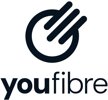Compare the Best UK Broadband Providers
Use our UK address level accurate broadband comparison service to save money.
Switch broadband providers with us and you could save up to £180.48 per annum*
What Is The Size Of The Broadband Marketplace In The UK?
The number of suppliers to the UK Broadband Marketplace is much bigger than people generally think with over 300 different ISPs (Internet Service Providers). However the vast majority of the UK population would find it hard to name more than 10 different ISPs.
The ISPs providing internet access in the UK can be broadly segmented into 3 different groups.
1) Large nationally recognised brands with nationwide coverage. This includes BT Broadband, Virgin Broadband, Sky Broadband, Vodafone Broadband, TalkTalk Broadband, Now Broadband, John Lewis Broadband, etc.
2) Medium sized players with very good UK coverage. This includes Zen Internet, Shell Energy Broadband, John Lewis Broadband & others.
3) A large number of smaller mainly regional based ISPs who almost exclusively deal in providing FTTP (Fibre To The Premises) broadband service. These suppliers are sometimes called AltNets (Alternative Networks). Examples are Trooli, TrueSpeed, G.Network, etc. Hyperoptic and Gigaclear are examples that have a wider supply area than many other AltNets.
There is a further segmentation of the marketplace between business & consumer ISPs. Some ISPs exclusively service business customers, some only have consumer customers & some have both business & consumer customers. Some ISPs like BT, Virgin and TalkTalk have seperate consumer and business entities.
What Is the Importance of Fast Fibre Broadband?
Fast fibre broadband otherwise known as Fibre To The Premises (FTTP) or Fibre To The Home (FTTH) is the future for high speed broadband connectivity for the vast majority of the UK. The roll out of full fibre broadband is moving at a fast pace.
For example:-
Openreach are accelerating their roll out of full fibre connectivity, in August 2022 it was available to 8 million UK homes and businesses; this is expected to grow to over 10 million by the end of 2022. If you want to check if FTTP is available at your house from Openreach then you can use their Openreach Fibre Checker.
CityFibre has an investment program of £4.9bn to provide FTTP to 8 million homes by the end of 2025. This will comprise 285 cities, towns and villages which is nearly one third of the UK population. CityFibre already has 1.7 million premises ready for connection via their ISP partners such as TalkTalk, Zen Internet, Vodafone, Giganet and others.
County Broadband already supplies FTTP services to over 250 towns and villages across East Anglia.
Hyperoptic is able to serve 900,000 homes as of August 2022 with the aim of being able to increase that number to 2,000,000 by the end of 2023.
Gigaclear is aiming to be able to reach at least 500,000 rural UK premises by the end of 2023. As of August 2022 they can reach 300,000.
Wessex Internet has signed a £5bn Project Gigabit broadband scheme with the UK Government which has the target of being able to reach 7,100 premises in North Dorset.
What is a good latency speed UK?
The average UK latency is between 10 & 20 milliseconds, however with a full fibre broadband connection latencies of sub 3 milliseconds are common, so fibre broadband can be over 10 times more responsive than a non-FTTP connection. Low latency timings are very important for people who play online games.
What is a good download speed UK?
The December 2021 Ofcom Connected Nations showed that the average UK download speed was 50 Mpbs. So anything around 50 Mbps or above can be considered a good download speed. Run a broadband speed test to check your internet speed.
If you want to find out what broadband deals are available at your address then check out the fibre broadband providers available on our site to get access to the fastest broadband connections in the UK.
Which Are the Best Broadband Providers in the UK?
Best is a very subjective term, especially when applied to UK broadband providers. What might be the best broadband package for one family may not be for another. A number of different factors come into play with the requirements for the family as a whole needing to be taken into account. This is especially true in the age of working from home (WFH) and remote learning. Gaming is another large constituent with very specific requirements and indeed there are internet providers who specialise in gaming such as Leetline Gaming Broadband and Ghost Gaming Broadband.
The term best broadband provider could also refer to award-winning internet providers like Plusnet and Zen.
Size and reputation could also be a factor in determining the best provider, with the UK market leading, BT Broadband being an obvious candidate based on the number of customers as it is the largest ISP in the UK.
Of course, speed will also be an important factor which is where Virgin Media Broadband is a major player.
The faster your broadband connection the more responsive your internet experience will be. Our site features the best fibre broadband suppliers that will be able to offer you a blazing fast fibre broadband deal if the technology is available at your property. Fibre broadband packages also generally offer very low latency times which is great for interactive experiences like gaming.
So, as is plain from above, "Best Broadband Provider" is a very subjective concept - we will do our best to guide you through the maze of the UK broadband market to choose an internet provider that is right for your needs.
Internet Service Provider Versus Network Carrier
An important piece of information that not everyone (who are not broadband experts) understands is the difference between an Internet Service Provider and a Network Carrier.
An ISP is an Internet Service Provider who provides access to the internet.
A Network Carrier is responsible for the actual physical infrastructure along which electrical signals are passed - the fibre and copper cables, the exchanges and the routers.
To illustrate this good example is BT Broadband and Openreach.
BT Broadband provides its users with access to internet services such as the World Wide Web (websites such as Google, BBC, etc.), email, mobile apps such as Instagram, etc.
Openreach is the actual network over which the BT Broadband services are delivered (bits & bytes of data being transmitted over the physical infrastructure of copper cables and optical fibres).
Thus BT Broadband is an Internet Service Provider and Openreach is a Network Carrier or Network Infrastructure Provider.
Openreach is actually a subsidiary of the main BT business which can be a little confusing - however, it is important to realise that quite a lot of other Internet Service Providers other than BT use the Openreach infrastructure to deliver its services. ISPs who use the Openreach network include Plusnet, Zen, Cuckoo Broadband and many others. The process whereby Openreach allows other Internet Service Providers (i.e. not BT) to use the Openreach network is called Local Loop Unbundling or LLU.
ADSL Versus Fibre to the Cabinet Versus Fibre to the Home Versus Wireless Versus Satellite. What's the Difference?
The actual physical delivery method of internet services by internet providers has a large impact on one of the most important factors in determining the best broadband provider - that is speed.
This is actually a large subject so will not be covered in depth here, just enough to give some valuable background.
What Is ADSL Broadband?
ADSL stands for Asymmetric Digital Subscriber Line and it is the original broadband communications technology in the UK and also the slowest. It is delivered over traditional copper telephone lines and the speed of broadband at the home or business is related to the distance from the exchange. The further away from the exchange the slower the speed that will be delivered by your internet provider.
What Is FTTC Broadband?
There are two main types of fibre broadband package in the UK - Fibre To the Cabinet (FTTC) and Fibre To The Premises (FTTP). FTTC is the main source of fibre broadband connections in the UK. This means that the telephone exchange cabinet (those green Openreach boxes you see by the side of the street) has a fibre (very high speed) connection to the network provider's main internet backbone, but the copper wires still perform the last part of the physical journey to the property. FTTC is much faster than ADSL broadband but speeds still drop off in relation to the distance from the cabinet. If you live close to a fibre broadband enabled cabinet, speeds of up to 70 Mbps are available.
What Is FTTP Broadband?
Fibre To The Premises (FTTP) is the fastest type of broadband available in the UK. With FTTP, broadband is carried all the way between your premises and your telephone exchange by fibre-optic cable with no usage of old copper phone lines. Speeds of up to and over 1000 Mbps (1 Gigabit Per Second) are available on Fibre Broadband To The Premises from some fibre internet providers. If you have a fibre broadband connection to your property you will need an ONT (Optical Network Terminal) installed by the engineer. The fastest connections available in the UK are fibre broadband connections.
What Is Wireless Broadband?
Wireless broadband is an internet connection that doesn't use cables. Wireless broadband may be either fixed or mobile with the latter being delivered over the mobile phone network to connect you to the internet. The latest technology is 5G and it promises to deliver much faster speeds than the existing 3G and 4G mobile networks.
What Is Satellite Broadband?
If you happen to live in a remote property that is not connected to the phone network then satellite broadband is an option. There is a new generation of satellite broadband suppliers that are offering fast speeds and lower prices than previous versions of the technology.
These include Konnect and Elon Musk's SpaceX Starlink low earth satellite broadband.
How Many Broadband Suppliers Are There in the UK Marketplace?
As mentioned above there are over 300 ISPs selling services to the UK consumer and business Broadband marketplace.
Who is the largest broadband provider in the UK?
BT is the largest broadband provider in the UK with over 9,000,000 broadband customers. The division of BT that serves consumers has over 30 million customers which makes them the largest provider of consumer mobile and fixed broadband communications services in the UK. These customers are serviced by their three consumer brands of BT, EE, and Plusnet.
The other large broadband providers are Sky, Virgin Media, Now, Plusnet, Vodafone, John Lewis Broadband and TalkTalk.
These are the big beasts of the UK Broadband Marketplace with the most brand name recognition and the largest coverage.
It is worthwhile remembering that the large broadband providers can also offer mobile phone deals and that there are combined broadband and mobile phone deals available. For example Sky Mobile, Virgin Mobile, ee Mobile (ee is part of BT), TalkTalk Mobile & Vodafone Mobile deals are all available from the respective ISPs. Other brands known mainly for mobile phone services such as Tesco Mobile and 3 Mobile will also offer broadband services that can be combined with the mobile phone deals.
One ISP that is of note is Vodafone. Vodafone has a partnership with CityFibre. What makes CityFibre interesting is that they are the UK's largest alternative provider of wholesale fibre broadband network infrastructure (BT Openreach is the largest fibre broadband network provider) and CityFibre are also the builder of Gigabit Cities. Vodafone utilises both the Openreach and the CityFibre networks to provide its internet services.
Who Are the Medium Sized ISPs With a Fair Amount of UK Coverage?
Andrews & Arnold, Cuckoo Broadband, Shell Energy Broadband, iTalk Telecom, Zen Broadband, Onestream Broadband, Hyperoptic, Gigaclear, Community Fibre, County Broadband and others.
Who Are the Major Mainly Regionally-based ISPs?
This is a very large segment (in terms of the number of internet suppliers) but a large number of them are highly regionally focused such as WightFibre which supplies FTTP to the Isle Of Wight.
These suppliers are also called AltNets (short for Alternative Networks) and as of August 2022 there are over 70 of them in the UK.
Examples of regional FTTP suppliers include:
KCOM, TOOB, Broadway Broadband, Cambridge Fibre, Zzoomm, Jurassic Fibre, Truespeed, Wessex Internet, etc.
One of the advantages of having a regional ISP as your Internet Service Provider is that they almost all offer FTTP packages (which means very high speeds), competitive costs and generally excellent customer service. A lot of the regionally based internet providers also offer highly competitive packages in terms of monthly cost. Some of the FTTP providers will also offer symmetric connections which means that the download and upload speeds will be the same.
Who Are the Best Broadband Providers by Size?
The four largest internet providers in the UK are BT (Plusnet, EE) have an estimated 9,300,000 customers. Sky Broadband (UK+IRE) has an estimated 6,200,000 customers. Virgin Media has an estimated 5,494,100 customers. TalkTalk has an estimated 4,200,000 customers.
For some users of the internet, the size of the internet provider does matter and there can be a feeling of security in knowing that your internet service is provided by a large and reputable internet provider.
Both EE and Plusnet are wholly owned subsidiaries of BT - but they are run as distinct businesses.
Who Are the Best Broadband Providers by Speed?
Virgin Media with its own high speed network have consistently won awards for having the highest speeds of any major ISP. This is also borne out by the speed tests run on BroadbandUK's own broadband speed test where Virgin Media users of the speed test consistently rank in the highest speeds run by a major ISP.
However, with the continued nationwide rollout of FTTP (fibre broadband to the premises) by Openreach and other fibre broadband suppliers, it seems likely that all of the major ISPs will have speeds equal to or better than Virgin Media in the coming years. There is no doubt that fibre broadband is the future for the majority of the UK broadband customer base.
Which Are the Best Broadband Providers for Gamers?
There are a large number of gamers in the UK and online games are very popular.
Reliable high speed internet connection with low latency and low jitter are vital for gamers to have a good online gaming experience. If possible then fibre broadband is recommended for gamers.
Both Leetline and Ghost are dedicated gaming internet providers and can be considered amongst the best for gamers. The Ghost website homepage states that its service is "Gaming Broadband DESIGNED BY GAMERS, FOR GAMERS - The ultimate multiplayer and Pro standard gamer broadband".
Among the larger internet service providers, Zen Broadband considers itself a good ISP for gamers.
Which Are the Best Best Broadband Providers by Awards?
Andrews & Arnold is consistently rated as the best ISP by the users of the ISPreview website.
Plusnet has consistently won awards over the years particularly for customer service.
For 17 straight years, Zen Internet has won awards from PC Pro. Again Zen Internet also has a good reputation for good customer service.
Virgin Media is a regular winner of industry awards, particularly for its speed of service. The Virgin Media O2's gigabit broadband service which has speeds of up to 1,120 Mbps has now been made available to 15.5 million premises in the UK.
Among the smaller ISPs, Hyperoptic has also won awards for its full gigabit fibre optic broadband deals. In London, Community Fibre broadband also offers gigabit fibre optic broadband deals that are highly regarded. The fibre broadband ISPs offer highly competitive monthly costs for their high speed services.
Which Are the Best Broadband Providers for Bundled Media and Telephony Services?
Of course, broadband as a service quite often comes bundled with a number of media services such as Amazon Prime, Netflix, Sky TV, BT Sport and others. Though of course, the addition of extra services will have an effect on the monthly cost of the service. So while TV and broadband deals are well represented in the broadband deals marketplace there is always a cost to consider when choosing a supplier.
Broadband can often come bundled with fixed line telephony services (particularly with BT) or mobile telephony services. Check if there are inclusive calls bundled with the internet deal?
Among the large ISPs, BT Broadband, Sky Broadband and Virgin Media Broadband often bundle broadband with media and telephony options. Virgin Media packages are very popular. Now Broadband offers a range of Sky Internet related TV services not on a long contract basis but on either a day, week or monthly basis.
Are broadband and internet the same?
Broadband is a type of access to the internet. The internet is the network of servers that store data (generally made available as websites), broadband is the method to access the internet.
Best Broadband Providers UK Summary
As mentioned in the introduction to this article, "best" is a highly subjective term when it comes to broadband. We hope that this guide can help you in choosing the right ISP for your requirements.
Broadband is now referred to by many as the fourth utility and is almost universally recognised for its importance in modern life. In the coming years, all fixed line telephone services are due to be migrated to Voice Over IP (VoIP) which will make having a good broadband service even more important.
To make a start in selecting a great broadband provider enter your postcode in the box below.
Save hundreds of pounds per year with the UK's only property-specific broadband suppliers comparison site
Comparing the UK's Leading Broadband Providers
Save money with the only address level accurate information from the UK's leading broadband providers such as BT, Virgin Media, Sky, TalkTalk, Vodafone, Plusnet, etc.

BT

Sky

TalkTalk

Virgin Media

Vodafone

Community Fibre

Cuckoo

EE

G Network

Gigaclear

Hyperoptic

KCOM

NOW Broadband

Onestream

Plusnet

Shell Energy Broadband

Three

Trooli

TrueSpeed
Use our site to compare broadband deals from the best broadband providers in your area.
UNBIASED
Always free and impartial. We only ever focus on finding the right broadband supplier for you which means no sponsored listings. We will help you find a great internet provider.
FOCUSED
We aren't a jack-of-all-trades comparison site, we are focused on the best UK broadband suppliers and nothing else.
ACCURATE
Address-level accuracy means we show you broadband availability at your home, not a postcode. This is important as internet speeds can vary by a large amount across a postcode.
How Can I Find the Best UK Broadband Provider for My Postcode?
Here at BroadbandUK, we have honed our systems to provide address-level and not just postcode accuracy.
We are able to find the best broadband deals knowing what infrastructure, cable, copper or fibre broadband is available on your side of the road where you live. The speed is known to your home and with our detailed information, we are able to offer you specific broadband deals from our various partners which are accessed in real-time from their databases.
The availability can differ sometimes, depending on which side of the road you live, with some streets only having cable on one side of the street. If there is only copper available to your house your deals will be restricted to normal ADSL broadband and therefore ultrafast broadband speeds are not an option.
Our system not only searches for your postcode but also searches out your specific address and when confirmed we can deliver deals specifically for your property. We are the first Broadband comparison site to offer this unique service in the UK. With the new OFCOM regulations now insisting that the customer is contacted at the end of their contract and offered a revised deal, we can save you money with our new comparison service.
Finding the fastest, cheapest, best internet deal from a range of broadband suppliers can be a minefield when searching for a new or revised contract, below are a few topics to consider.
How much does broadband cost per month UK?
There is a large range of prices for broadband in the UK. ADSL which was once the only broadband connection available is now becoming harder to find. However there are some very competitive deals available for FFTC some of which are both faster and cheaper than ADSL broadband. For example there are plenty of fibre broadband packages in the 45 Mbps to 67 Mbps download speed range that cost between £17.95 and £20.00 per month.
Generally speaking, with the new rules now in place, checking out a new provider will be cheaper than your current one (so your monthly cost will be lower), unless your current provider wants your business. Shop around and look at the offers available from different internet providers, with our address-level offerings. Look out for special offers as they can be favourable especially when deducted from the annual payment. Savings can be made by searching for a cheaper, faster broadband deal. Make sure you know your existing monthly cost and average speeds before you start your research for a new broadband package.
New legislation regarding your current broadband contract has recently been imposed by OFCOM and has made it compulsory for your current provider to notify you in advance of the date that your contract ceases. Our advice is to look around and compare before making a decision to renew your current deal. On your existing contract are there any mid-contract switching costs to consider?
What is my broadband speed?
Normally speed is not the most considered topic when checking out a broadband deal. The faster the speed normally the more expensive the package becomes. Is the line outside shared with neighbours, do you require streaming, use online games, have many Televisions, how big is the household and how many devices are used? A balance must be considered between speed and cost due to high usage periods slowing down the system which may cause frustration if your internal network struggles to cope. Is your broadband provider giving you the speeds that they promised in your broadband deal? Fibre optic broadband providers offer the fastest speeds. Use an internet speed test to find out the speed of your broadband connection. If possible, test WiFi speed and the speed when the computer is connected to the router via an ethernet cable.
How do I find out when my broadband contract ends?
You should always know when your contract is due to finish as that is the time to start looking for a new broadband deal. If in doubt either telephone your broadband supplier or log into your account on your ISPs website. Generally speaking, the length of a broadband contract is normally 12, 18, or 24 months and both the length and cost of deals can vary between providers considerably. It is worth looking at the complete package including offers and one-off packages that frequently are time-limited to bolster sales. Early termination fees are also worth investigating as they can be expensive, especially if you live in a short term rental.
What Are The Costs for Broadband Setup and Extras?
Be wary of any additional costs over and above the normal broadband package. Many broadband deal packages have zero setup costs, other deals can range from £5 to £65. When looking at a broadband deal do not just look at the monthly price but also check the first year cost.
Delivery charges, TVs, mobiles, installation, setup, and other combinations should all be investigated before ordering your package. Vouchers, free gifts, cashback, and other incentives are also worth considering in your decision making, but they usually come by being time-dependent. However, don't be rushed into a decision, consider the overall package and total commitment before signing your contract. When researching broadband deals take your time and ensure you have accurate information. Is the broadband package being offered the correct one for your circumstances? Compare broadband deals from different suppliers against each other.
How Do I Find the Correct Broadband Speed for My Property?
The speed requirement for each household will differ depending on many factors, generally speaking the higher the speed the quicker you can download data. The cost, however, increases the faster the speed and therefore you must balance out what speed you require against the cost, making sure you don't underestimate your requirement within your household.
How can I check the speed of my broadband?
The best way to find out what broadband speed you can obtain is to test your WiFi speed by using a broadband speed test without anything else on the network interrupting the testing process. The results should indicate the speeds for upload and download at your current location. The results may then be used to search the comparison sites for a broadband deal. There are however factors to consider before checking the broadband provider sites. Usage in the household, how many residents, type of use (high/low), streaming, games, video conferencing, etc.
How Do I Know What Speeds I Need For Broadband?
The broadband speed you will need depend on a number of factors including the following:-
The number of people in the house.
The sort of internet usage (browsing, streaming, gaming, etc).
How many people are Working From Home (WFH) & do they need to make regular vidoe calls? Below is a guide to what typical broadband usage might be depending on the differing requirements of the household?
0-35 Mbps (1-2 people per household)
OK for general internet usage, browsing, and social media, normally copper wire (ADSL) which averages 10-18 Mbps. But FTTC or FTTP are generally the better option.
35-60 Mbps (4+ people per household)
Ideal for concurrent internet usage, video streaming, and conferencing. This really has to be a fibre broadband connection.
60-100 Mbps (considerable parallel usage)
Concurrent internet usage, streaming, and gaming. Cable and full fibre broadband are worth considering but a little more expensive.
100 Mbps+ (homeworking, large downloads and concurrent usage)
Lots of devices, gaming, many connected devices, home working, video conferencing, and file sharing.
What Affects Broadband Speed?
There are a number that can have an effect on your speed.
- The type of connection, full fast fibre broadband offers more reliable and faster speeds than ADSL or FTTC as data is transferred faster through the fibre optic cable than the copper wires of ADSL.
- The distance from the exchange and the green cabinet at the end of your road. The last part of the journey to your house goes through the green cabinet and from the green cabinet to your house is serviced via copper wires. Therefore if the green cabinet is a long way from your house there will be a degradation of speed on the line.
- The use of fibre broadband or full-fibre to the property eliminates the use of copper and takes away the latency or delay from the cabinet to the property. This option allows for faster speeds up to a gigabit and beyond.
Router Positioning
The position of your router in your property can have an effect on the speed you experience through your WiFi device. Hidden away under the TV or in a cabinet is not recommended or near thick brick walls. The ideal place for a router is in an open space and away from other electrical devices.
How do I switch from one broadband provider to another?
If your contract has expired you can switch to another broadband provider at any time without any termination penalties. If you are still within your agreed contract period termination penalties may be charged. The latest legislation obliges providers to notify you if you are still under a contract of your impending termination date. To find out your termination date, just call up your provider and ask for the information. They are legally bound to tell you.
What is End Of Contract Legislation?
Ofcom made it mandatory that all broadband providers are obliged to send end of contract (EOC) notifications before each customer's fixed-term contract ends. In addition, your ISP must tell you when your contract is ending and what other deals are available. Finally, always remember to check both the advertised monthly cost and average download speeds on any advertised deal.
2021 Broadband Market Information
According to the latest 2021 Ofcom Connected Nations report, there has been exceptional growth in full fibre broadband to the premises with over 8 million UK homes (28%) now being able to get FTTP. This is 3 million more premises (10%) than a year ago, and represents the highest year-on-year increase since full fibre started being rolled out in the UK.
However while the best fibre broadband is available for connection to over 8 million UK homes only 2 million have actually been connected, which is only 25%.
Over 750,000 thousand homes were connected to full fibre broadband to the premises in 2021 thus being able to access the best possible broadband experience.
Meanwhile, Gigabit-capable broadband is available to 13.7 million homes (47%). This includes full-fibre and upgraded cable networks that are capable of delivering download speeds of 1 Gbit/s or higher.
There is further accelerated growth planned for 2022 with both Openreach and CityFibre announcing major rollouts.
2021 has also seen a major increase in the number of alt-nets (Alternative Networks) with a large number of new entrants. BroadbandUK has identified 74 alt-nets supplying FTTP to different parts of the United Kingdom.
Larger alt-net suppliers include CityFibre, Hyperoptic, Community Fibre, County Broadband, Gigaclear and OFNL (Open Fibre Networks Limited).
Smaller and highly localised alt-nets include Cambridge Fibre Networks Ltd, Grayshott Gigabit Limited, Hampshire Community Broadband and Wightfibre Ltd.
Some alt-nets are highly regional, take for example UPP is (as of Dec 2021) only serving Stamford in Lincolnshire and Diss in Norfolk.
In the 2021 awards season for best broadband providers both Zen and Plusnet have continued to perform well picking up several awards. Virgin Media Broadband has also done well with consistently being rated the fastest of the major internet service providers.
From the Ofcom report from May 2021 which compared the major broadband service providers the major findings were as follows:-
Satisfaction with the overall service
EE 82%; Plusnet 81%; Sky, Virgin and BT 80%. TalkTalk 77%.
Satisfaction with the speed of the service
Virgin 82%; Sky and BT 80%; EE 78%; Plusnet 75%; TalkTalk 71%.






















